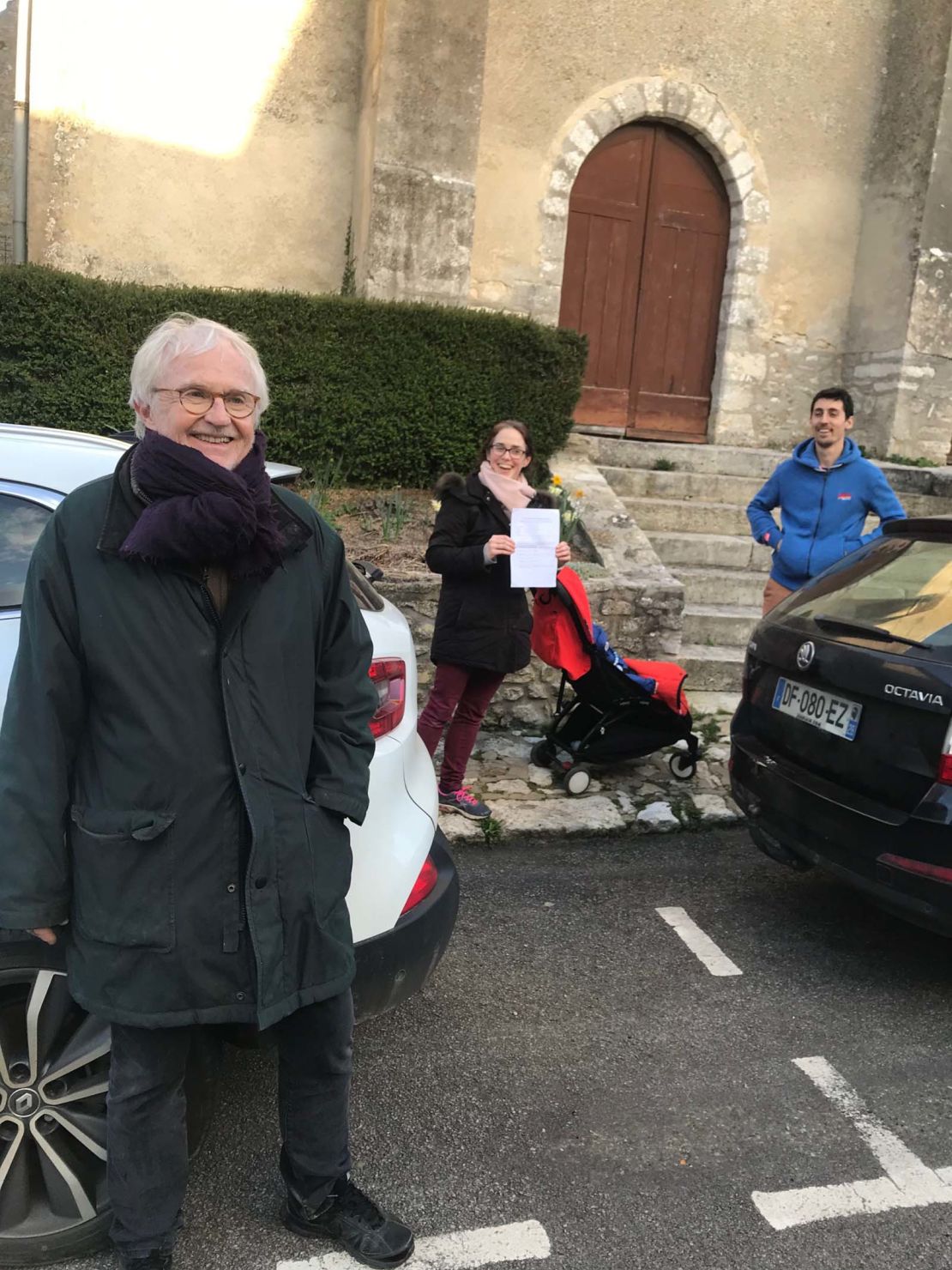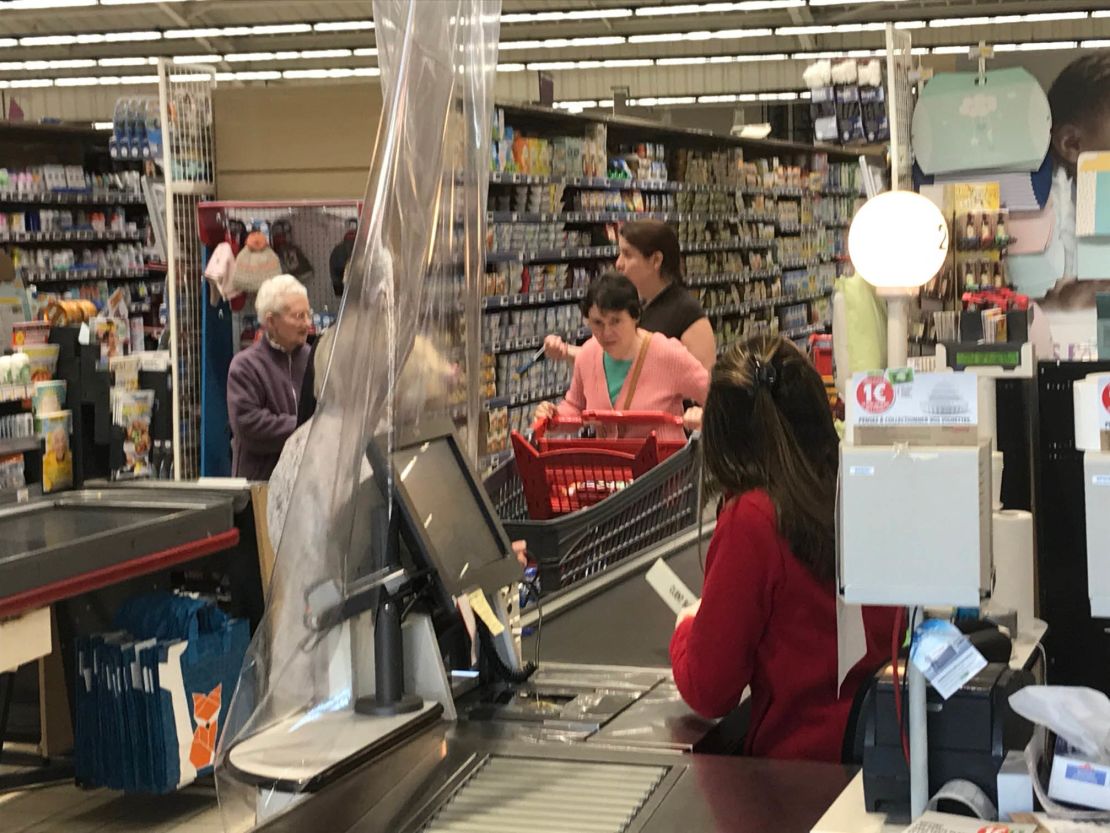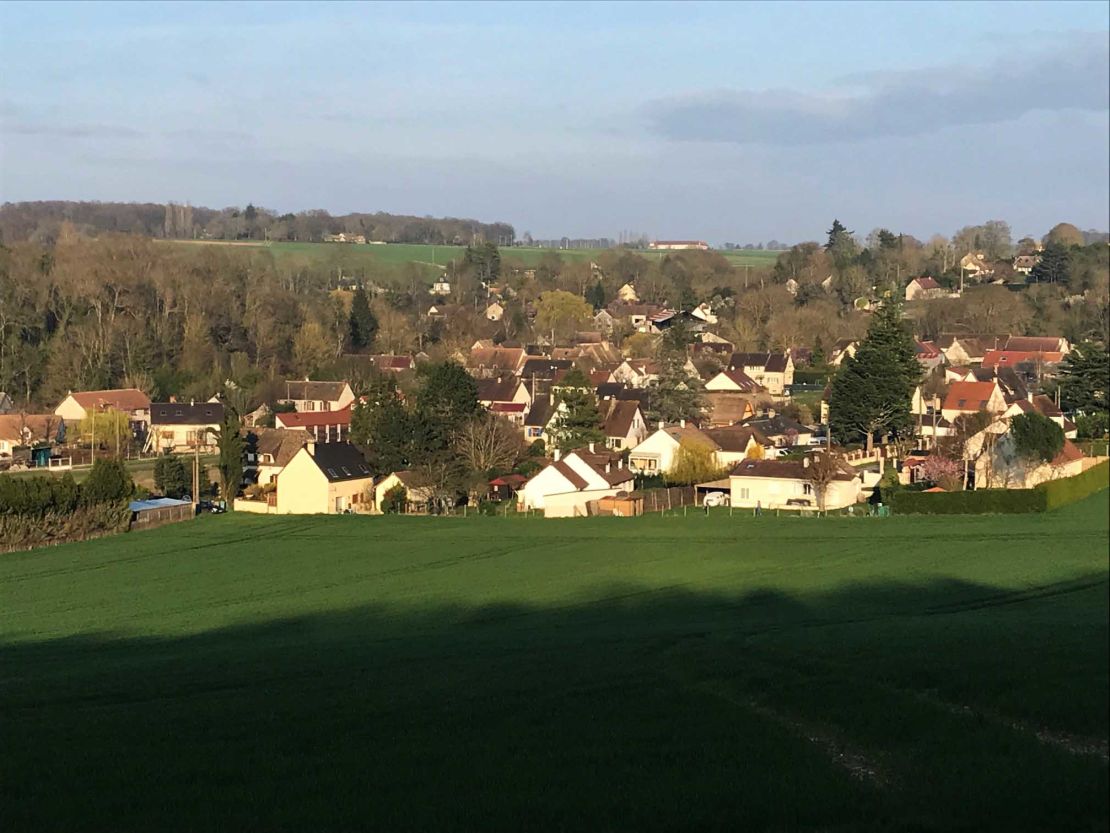Editor’s note: Jim Bittermann is CNN’s Senior International Correspondent based in Paris. He has lived there for 40 years.
The streets of Paris are empty. The theaters and cinemas are dark. The cafes and restaurants shuttered. Museums closed. The parks and playgrounds deserted. The government has so ordered. Everyone you meet eyes you with suspicion. Is this the person who is going to infect me? Am I going to infect this person? Above all, the atmosphere here is very, very sad.
In the countryside, people typically greet each other with “les bises,” the tradition of kissing each other on the cheek. Now they stand awkwardly two meters apart and talk loudly. The coronavirus outbreak is making people nervous and anxious and ready for any human, if touchless, contact.
There are the physical tragedies of the illness and its deaths, but there are the psychological ones too. For France, these are awful times. This is a supremely social country, but now social distancing is the rule of the day. So many French obsessions are related to getting together and spending time with each other… the quest for shorter work weeks, early retirement, more vacation time, all stem in part from a desire to increase time spent with friends and family.

Unlike some countries, where people often go out to put down as much food and drink in as short a time as possible, here making a drink or meal last as long as possible is the norm. You must have time to talk, laugh, sympathize and empathize. It’s part of the culture.
Coronavirus Diaries
This virus has put an end to that. Psychiatrists on television are warning about an increase in case of self-harm linked to the government-mandated lockdown and academics are advising how to use social media to help with mental health. The head of the French equivalent of the parent-teacher association was on the radio observing that forced confinement has led to a dramatic upturn in violence in the home.
Normally life in France is endlessly amusing. Distractions are everywhere. There is always something to do. But the coronavirus brought that to a halt, at least temporarily. Now life here risks becoming what the French consider intolerable – boring.

Part of the culture too is working in teams. “L’esprit d’equipe” is what the French call it. Sharing ideas and challenges together, working on solutions together. “It’s us against the problem.” That spirit of cooperating exists still… but these days only via video conference.
Even so, when confronted with crisis or calamity or obvious need, French sociability may help them to get through this. They are good at forming a consensus. Just in the past few days, a public opinion poll indicated that 93% believe the tough lockdown measures are necessary, 54% approve of the way the government is handling things. And, remarkably in a country where the national sport is criticizing the political leaders of the day, confidence in President Emmanuel Macron’s leadership has jumped up 13 points – 51% of the French public have confidence in what he is doing.
Nicholas Christakis, a Yale-based medical sociologist, observed on CNN recently that evolution has created social nature in humans. The same social nature that has hastened the spread of the disease. But, he adds, that evolution has also given mankind the ability to work together and that in the end is what may help to solve the problem.
But where exactly is the end? I went around the little village where I am hunkered down to ask some of the elders if they saw any parallels between the current situation and what happened here during World War II when we had a German platoon installed in the local chateau. Surprisingly, they saw few.

The Germans had allowed them to go out and about and move from town to town. The only time people really were confined to their homes – more often their cellars – was when the bombings started before and continued after D-Day.
These days the orders are: stay at home and stay away from your neighbors, no matter what.
There were shortages of essential goods during the war. During this crisis, there really hasn’t been anything in short supply, at least once everyone filled their closets with a nine-month supply of toilet paper.
But there is at least one thing in common with the present situation and the war years – the uncertainty about how all this is going to end. Out here in rural France, the 15-day confinement period is generally scoffed at. The lockdown could go on far longer than most everyone believes. Just like during World War II, there is no real idea about what the world will look like afterward.
Macron wrote about another similarity to the war years in a weekend op-ed in the Journal de Dimanche.
“We’re not at the end of this epidemic,” he told his countrymen, “this will be a test of the solidity of our democracy.”

